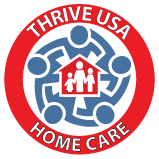6 Tips for Medication Management for Older Adults
You may have heard about the importance of medication management if you take care of an aging loved one or if you are getting older yourself. People may develop various chronic diseases as they age, requiring the use of various prescription medications from different prescribers. According to studies, 87% of seniors use at least one prescription medicine, 36% take five or more, and 38% take over-the-counter meds. Drug interactions, adverse effects, and accidentally missing or double dosages are all risks that come with this situation. Medication management is a set of procedures for preventing such events.
Store All Medicines and Vitamins in One Place

It’s easy to lose track of the prescription medicine, vitamins, over-the-counter medication, or supplements you’re taking if they’re all kept in separate places. Some seniors, for example, may keep certain medicines in the kitchen, others on their nightstand, and yet others in the bathroom medicine cabinet. It’s especially crucial to include over-the-counter medicines since they can still induce adverse drug interactions when used alongside prescription drugs. Keeping everything in one place is an excellent habit to develop. You’ll be able to monitor exactly what’s being taken, ensure that comparable prescriptions aren’t being written for the same health problem, and know when to discard expired meds.
Store Your Meds Properly
Medication should be stored in a cool, dry area. That means storing medications in the bathroom cabinet isn’t a smart idea because moisture and heat can affect medications. Follow the doctor’s or pharmacist’s directions for medicine that requires special storage, such as refrigeration.
Be Clear on Medication Instructions!
It’s critical to follow your doctor’s directions when taking drugs. This reduces the chances of harmful medication interactions, adverse effects, or the medicine’s efficacy being harmed.
Make sure you and your senior loved one understand which drugs may be used together and which should be taken separately to avoid harmful side effects. Some prescriptions, for example, must be taken with food, while others must be taken on an empty stomach. If you have any questions, don’t be hesitant to approach the doctor for clarification.
It is their responsibility to ensure that the prescriptions will enhance health, which can only happen if they are used appropriately.
Create an Up-to-Date Medication List
It’s important to know what drugs your senior loved one is taking in order to avoid dangerous drug interactions. That’s why it’s important to keep track of their medications, vitamins, supplements, and over-the-counter medications at all times. Keep this list in a safe place in the home where the list can be easily accessible in case of an emergency..
Keep the following information in mind:
- Names of all prescription, over-the-counter, vitamin, and supplement medications
- How frequently each item is used
- What is the dose of each item?
- Each prescription drug was written by a different healthcare professional.
- The item’s purpose and/or the symptoms it’s designed to address
- Whether each item will be used for a short or extended period of time
Double Check for Negative Drug Interactions

Many older people use a variety of drugs, vitamins, over-the-counter treatments, and supplements. That’s why it’s necessary to double-check that none of them will result in a negative drug interaction. Use an online drug interaction checker to ensure the doctor or pharmacist didn’t overlook any potential interactions. If any interactions are discovered, contact your doctor or pharmacist right away for guidance (don’t make any adjustments yourself).
Medication Saftey
Medications assist older people in managing their health issues. It’s also important to keep track of the medications we take!
When your doctor gives you a new medication, make sure to ask…

What is it for?
Do I really need it?
How should it be taken?
For how long should I take it?
What are possible side effects?
How should I store it?
Ask your primary doctor to review all your medications.
All of your doctors’ prescriptions should be included.
Bring your medication bottles or a list with you.
Include OTC (over-the-counter) medications.
Don’t forget supplements.
Discuss the negative consequences.
Ask if each drug is still needed.
Your skilled in-home caregiver can drive you to the pharmacy or pick up medicines, as well as remind you to take your medications. Request a care consultation from Thrive USA Homecare today.


